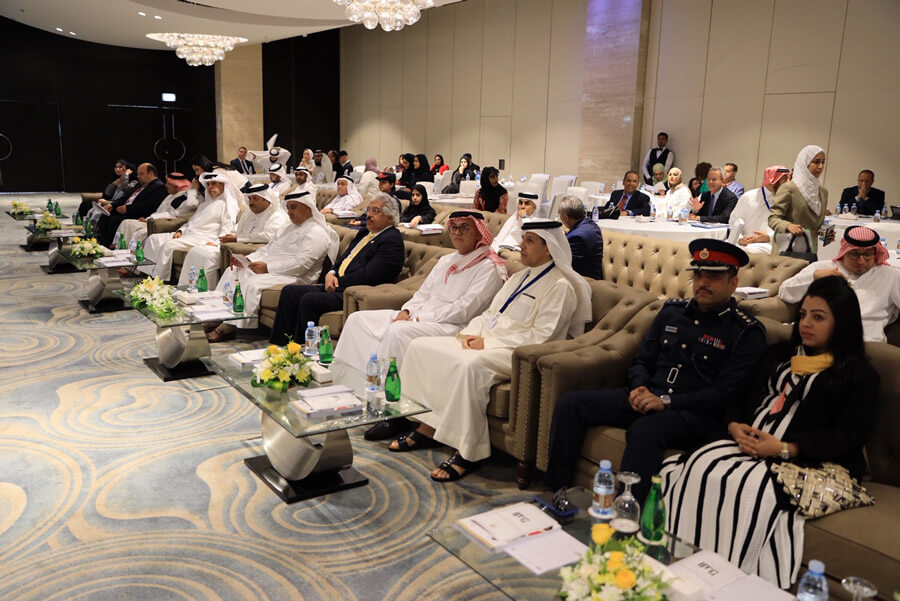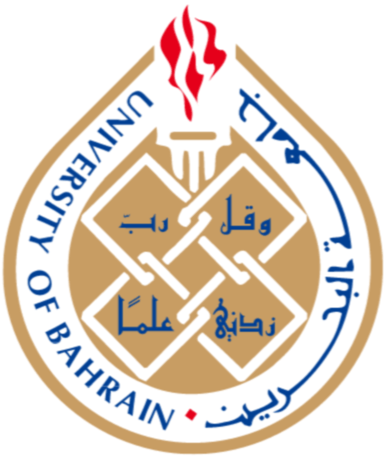NEWS
Dr. Hamzah: The Major Cultural Challenges Require Resorting to Interregional Human Studies

“Arts”
Partners Forum Calls for Creating Academic Programs that Create Passion and Impact
Dr. Hamzah: The
Major Cultural Challenges Require Resorting to Interregional Human Studies
The President of the University of Bahrain (UOB), Dr. Riyad Yousif
Hamzah, emphasized that major global cultural challenges make it imperative for
the humanities programs to engage in interregional knowledge through systematic
partnership between departments in the College of Arts.
During the first meeting of the College of Arts partners on
Monday (24 February 2020) Dr. Hamza called in his speech for working on new
quality programs such as women’s studies, announcing that the University is
currently working on establishing associate diploma, higher diploma, and master’s
programs that address the needs of the labor market.
Also, the President of the University mentioned that the
programs that are expected to be launched in the College of Arts soon include
Associate Diploma in Family Arbitration, Diploma in Teaching Arabic to
Non-Native Speakers, and Diplomatic Media.
The Forum was held at the Grove Hotel in Amwaj Islands and
was attended by officials from government and private institutions, in addition
to faculty professors and a group of its alumni. These institutions included
the Education and Training Quality Authority, the Civil Service Bureau, the
Ministry of Information Affairs, the Institute of Public Administration, and
the Ministry of Education.
Moreover, Dr. Hamzah stated that the College of Arts seeks
to achieve an exceptional position among the Colleges of Arts in the Arab
region and the world, and it will be able to achieve that by developing its
programs in line with the needs of the labor market and keeping pace with the
rapid changes regionally and globally.
Also, the participants in the sessions that discussed
preparing specifications for the College of Arts graduates in line with the
market requirements, included the Undersecretary of the Ministry of Information
Affairs Dr. Abdulrahman Mohammed Al-Bahar, Director General of the Institute of
Public Administration Dr. Raed Mohammed bin Shams, and Director of Public
Relations Department at the Ministry of Education Dr. Fawaz Ahmed Al-Shurouqi.
For his part, the Dean of the College of Arts Dr. Abdulaziz
Mohammed Bulaila stressed the importance of looking at the rapid changes in the
process of developing the curricula and programs of the College of Arts and
future envision, which has become among the most important features of
artificial intelligence and its various applications.
And during the opening of the Forum, Bulaila stressed the
need to achieve the effectiveness of education that is capable of creating
outputs that elevate the burdens of sustainable development, and that is what
the United Nations indicated in its fourth goal related to achieving quality
education, indicating that UOB has demonstrated its excellence and competence
through the various certificates and advanced centers it has made on several
indicators, including the reputation to the employers.
While the head of the Quality Assurance Office at the College
and the General Rapporteur of the Forum Dr. Diana Abdulkarim Al-Jahrami pointed
to the need to benefit from the experiences of employers in developing
programs, in a way that helps to graduate capable competencies in all sectors,
stressing that the Forum is a valuable opportunity to solicit the opinions of
employers regarding graduate levels and their skills.
The Director General of the General Administration of the
National Qualifications Framework at the Education and Training Quality
Authority, Dr. Tariq Mohammed Al-Sindi spoke at the opening session, followed
by three discussion sessions that examined the characteristics of the graduates
of the College of Arts, the requirements of the labor market, and ways to
strengthen community partnership to ensure the quality of educational outputs,
the strategy for developing college programs, and proposing competitive programs.
And on the role of the National Qualifications Framework in
promoting job opportunities, Dr. Tariq Al-Sindi indicated that the importance
of the framework lies in providing the opportunity for the approval of formal
or informal educational and training programs, as well as the of individuals’ experiences
which they acquire at work and enhances job opportunities.
Also, he believed that enhancing job opportunities comes
through introducing appropriate qualifications to the labor market, improving
verification mechanisms, and creating an effective platform for employment
skills, stressing at the same time that traditional educational systems will
not be able to comply with the requirements of the labor market.
The first discussion session called for creating academic
programs capable of creating impact, as well as developing students’ passion,
which would help them improve, create opportunities, and establish private
enterprises.
The participants in the session saw the importance of
developing various skills, whether related to languages, problem-solving or
working in a team, noting that job requirements at the present time have become
numerous in light of the rapid technological developments.
Furthermore, the Undersecretary of the Ministry of
Information Affairs, Dr. Abdulrahman Al-Bahar confirmed the importance of the
intersection between graduates and previous experiences in the workplace, and
the use of their knowledge to bridge the gap between the theoretical and
practical aspects, in a way that helps to create a smooth transfer of knowledge
between generations, stressing the importance of developing programs that help
to create impact among learners and graduates.









